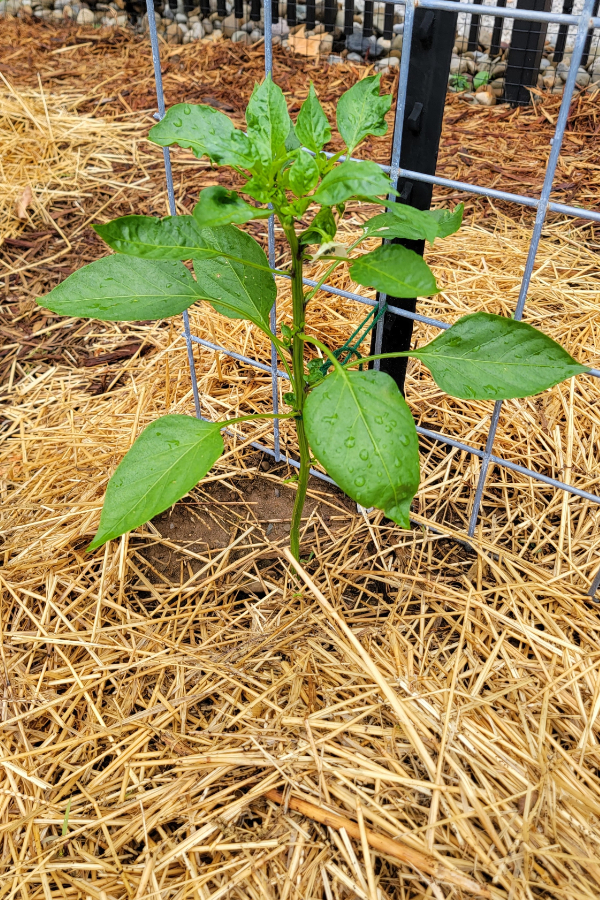Best Fertilizers for Peppers: Achieve Superior Results in Your Yard
Best Fertilizers for Peppers: Achieve Superior Results in Your Yard
Blog Article
Organic Vs. Synthetic Fertilizers: Which Is Best for Supporting Healthy Pepper Plants?
In the world of nurturing healthy pepper plants, the option between natural and synthetic fertilizers stands as an essential decision with far-ranging ramifications. While both alternatives aim to offer important nutrients to sustain plant growth, the nuances of their effect on the dirt, plant health and wellness, and the atmosphere stimulate a debate that echoes throughout the gardening community. Comprehending the distinct benefits and prospective risks of each fertilizer type is critical for pepper farmers looking for to optimize their yields while preserving an eco-conscious and lasting approach.
Benefits of Organic Plant Foods
Organic fertilizers use an environmentally-friendly and lasting technique to beneficial pepper plants, giving essential nutrients without the use of artificial chemicals. These all-natural fertilizers are originated from natural resources such as compost, manure, bone dish, and seaweed, promoting soil wellness and biodiversity. Unlike synthetic plant foods, organic alternatives launch nutrients gradually, making sure a stable and balanced supply for pepper plants to grow.
One considerable advantage of natural fertilizers is their ability to boost soil framework and water retention. By enhancing dirt health and wellness, natural fertilizers promote helpful microbial task, which assists in nutrient uptake by pepper plants. In addition, organic fertilizers reduce the risk of chemical run-off, safeguarding water resources from contamination and safeguarding the environment.
Moreover, organic plant foods contribute to long-term soil fertility by advertising the growth of useful dirt microorganisms. These microorganisms assist damage down raw material, launching nutrients in a kind that is quickly available to pepper plants. best fertilizers for peppers. By promoting a healthy soil ecosystem, natural plant foods support lasting pepper farming practices that profit both plants and the atmosphere
Disadvantages of Artificial Fertilizers
Synthetic fertilizers, as opposed to their organic equivalents, present various disadvantages when utilized to nurture pepper plants, influencing both plant health and wellness and ecological sustainability. One significant drawback of artificial fertilizers is their propensity to leach nutrients from the dirt promptly. This rapid leaching can result in nutrient imbalances in the dirt, causing plants to deal with shortages or toxicities. Furthermore, synthetic plant foods can hurt valuable soil organisms, such as earthworms and helpful bacteria, disrupting the soil community's balance.
Additionally, the overuse of artificial plant foods can add to water pollution. Excess plant foods not taken in by plants can remove right into water bodies, bring about eutrophication, where algae flowers diminish oxygen degrees in the water, harming water life. Additionally, synthetic fertilizers are commonly stemmed from non-renewable resources, such as nonrenewable fuel sources, contributing to carbon exhausts and ecological degradation during their manufacturing.
Nutrient Absorption Contrast
When comparing natural and synthetic fertilizers in terms of nutrient absorption, natural fertilizers have the benefit of providing a more well balanced and slow-release source of nutrients. Organic fertilizers include a selection of macro and micronutrients that are not only beneficial for the find out this here plants yet also advertise healthy and balanced dirt microbial activity, which assists in nutrient uptake.
In addition, natural fertilizers enhance dirt framework and water retention capability, permitting pepper plants to gain access to nutrients a lot more effectively. This enhanced dirt top quality helps with origin growth, making it possible for much better nutrient absorption. Artificial plant foods, although at first boosting plant development because of their high nutrient sites focus, might impede long-lasting nutrient absorption by degrading soil health with time.
Environmental Impact Factors To Consider

On the other hand, artificial fertilizers, although frequently more concentrated and immediately readily available to plants, can have destructive impacts on the atmosphere if not applied correctly (best fertilizers for peppers). Their production needs high energy inputs, leading to greenhouse gas discharges and contributing to climate modification. The drainage of excess artificial fertilizers can infect water resources, leading to eutrophication and damaging aquatic ecological communities.
Best Plant Food Practices for Peppers
When feeding pepper plants, optimizing nutrient uptake and minimizing ecological impact are crucial considerations. To attain this, it is important to follow ideal plant food practices customized to the certain demands of pepper plants. One critical practice is to execute a dirt test prior to using any fertilizers. This test can identify the pH level of the soil and recognize any nutrient deficiencies, assisting you in choosing one of the most appropriate fertilizer solution.
Another crucial method is to feed pepper plants at the correct time. Usually, peppers profit from obtaining plant food at growing and after that once more when they start to blossom. Over-fertilizing can result in vitamins and mineral discrepancies and hurt the plants, so it is important to follow suggested application rates.
Additionally, picking a balanced plant food with an NPK ratio that matches pepper plants' demands is essential. Ultimately, integrating artificial and natural fertilizers carefully can help support site web healthy pepper plants while lessening ecological impact.
Final Thought

Organic plant foods use an environmentally-friendly and sustainable approach to nourishing pepper plants, giving necessary nutrients without the usage of artificial chemicals. Unlike synthetic plant foods, natural alternatives release nutrients slowly, guaranteeing a constant and well balanced supply for pepper plants to thrive.
Synthetic fertilizers, in comparison to their organic equivalents, posture various downsides when made use of to nurture pepper plants, influencing both plant wellness and ecological sustainability. When comparing synthetic and organic fertilizers in terms of nutrient absorption, organic plant foods have the advantage of giving a more balanced and slow-release source of nutrients.In addition, natural plant foods improve dirt framework and water retention capacity, allowing pepper plants to accessibility nutrients a lot more successfully.
Report this page